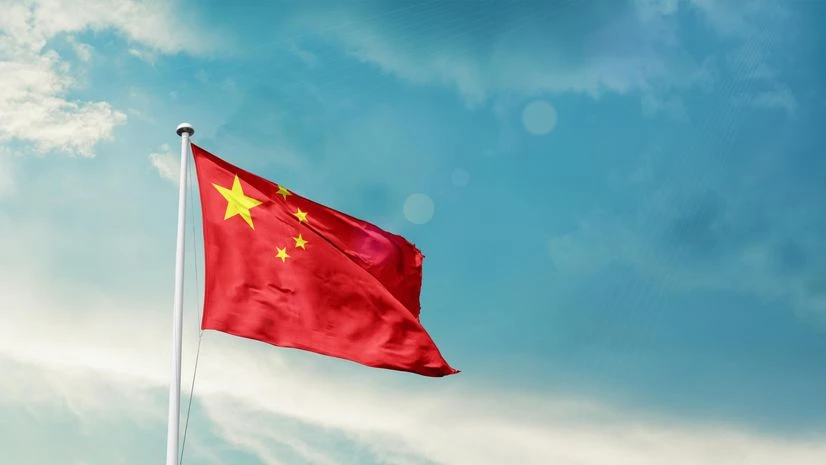)
Starting with the 1984 Los Angeles Olympics where China claimed its first diving gold, China has won 47 of 64 gold medals | Image: Shutterstock
Chinese divers won seven of eight gold medals at the last Olympics in Tokyo, termed one of the greatest performances in Olympic history.
Even more is expected this time in Paris.
China has ruled diving for decades. But it’s never pulled off the elusive gold sweep at the Games. The People’s Daily the official newspaper of the Communist Party termed this lapse regrettable in a recent article.
I hope that all of us can stand on the top of the podium, Tokyo gold medalist Quan Hongchan said in an interview on state-run television.
They might, and the record is already staggering.
Starting with the 1984 Los Angeles Olympics where China claimed its first diving gold, it has won 47 of 64 gold medals. Add to that 23 silver and 10 bronze. If you start counting from the 2008 Beijing Olympics, Chinese have won 27 of 32 gold.
That’s almost perfection, but someone always spoils the party like American David Boudia, Australian Matthew Mitcham, Briton Tom Daley or Russian Ilya Zakharov.
The People’s Daily urged the team to launch an all-out bid this time for gold medals in all diving events.
Eight might be the charm. That number is viewed as fortuitous in Chinese culture. Note the 2008 Beijing Games opened on Aug. 8, 2008, at 8 p.m.
Quan was only 14 when she won gold three years ago on the 10-meter platform. Teammate Chen Yuxi, the gold medalist in synchro on the platform, was only 15. Both are back and probably in a class by themselves.
For the men, Wang Zongyuan was the silver medalist on the 3-meter springboard in Tokyo behind teammate Xie Siyi and should be the favorite in Paris.
The American challengeThis will be Drew Johansen’s fourth straight Olympics as the U.S. diving coach. The head coach at Indiana University is assisted by Wenbo Chen, the China-born coach at the University of Minnesota. Also on the staff is Purdue coach David Boudia, the Olympic gold medalist on the platform in 2012.
Three silver medalists from Tokyo return: Andrew Capobianco, Jessica Parratto and Delaney Schnell. They all made the podium in synchronized events, and those events may offer the best chances for the Americans and others.
Parratto will dive again with Schnell in the 10-meter synchronized platform, and Capobianco is on the 3-meter springboard. He did not qualify in synchronized. Schnell and Daryn Wright will compete on the platform.
The world has been catching up to the Chinese in all the events except for women’s platform,” Johansen said. Chinese women on the tower are still way ahead of the world.
Sarah Bacon and Kassidy Cook have a shot in the 3-meter synchronized springboard, and Bacon and Alison Gibson should contend as individuals in the 3-meter springboard.
The new name to watch is Carson Tyler in both the 10-meter platform and 3-meter springboard, a rarity participating in both events and a reminder of Greg Louganis’ double-double gold medals in 1984 and ’88.
Carson has shown up as a great mental performer, Johansen said.
We’ve managed to beat China in certain events over the years and I feel like some parity has come to the sport, he added. We have been hovering around those gold medals and points away from getting them.
Johansen said part of the strategy is to put the pressure on the Chinese by attempting dives with a higher degree of difficulty, which earn more points if successfully delivered.
“It’s a risk-reward game,” he said.
The mental game Johansen credits Xu Yiming, who coached Chinese Olympic divers from the mid-1980s into the 2000s, for sharing his technical knowledge with the rest of the world. Johansen calls Xu a mentor from time they spent together when Johansen was coaching at Duke University.
He taught me a lot of their physical techniques right after he retired, Johansen said.
Having incorporated that knowledge, the next plateau is mental conditioning.
I physically couldn’t train them any better, he said. “I didn’t know anybody in the world who was doing it any better. The only way I was going to get my athletes to succeed was to prepare them mentally, and I didn’t know how to do that.
Johansen said he recently has begun assembling what he calls a performance think tank to teach mental focus and sports psychology. Without giving names, he said the team includes a Navy SEAL, a book author and others who study executing under pressure.
The program was started only a few months ago and is incorporating Paris, but the primary focus is the 2028 Los Angeles Games.
We’ve learned China’s physical techniques, but if we’re going to beat them we have to beat them mentally. I’m convinced of that,” Johansen said. We have an advantage over the Chinese if we can be mentally stronger and better performers.
(Only the headline and picture of this report may have been reworked by the Business Standard staff; the rest of the content is auto-generated from a syndicated feed.)
First Published: Jul 14 2024 | 11:47 PM IST









